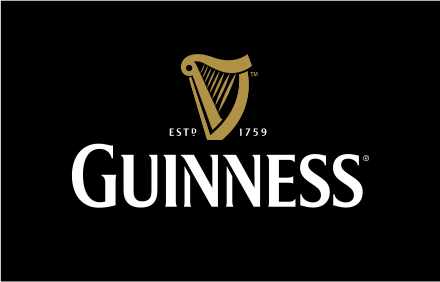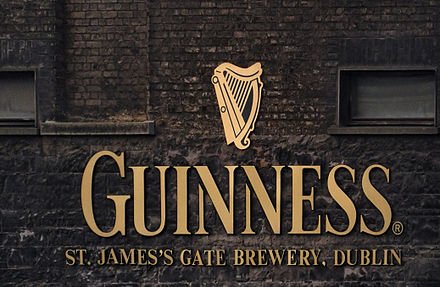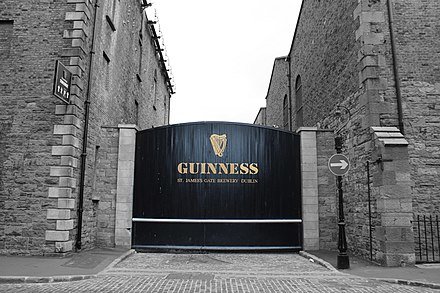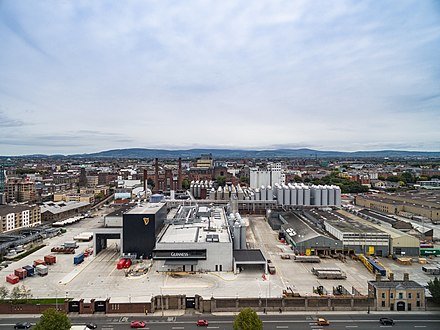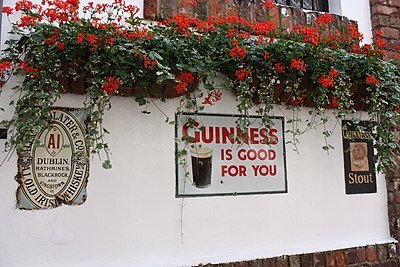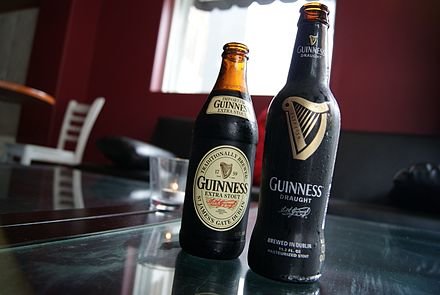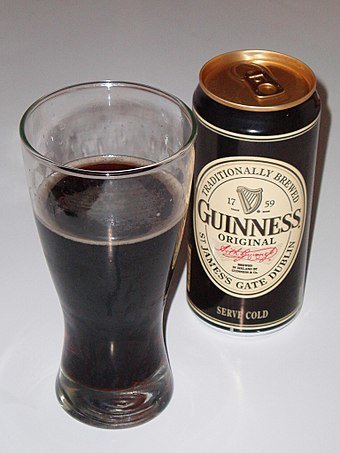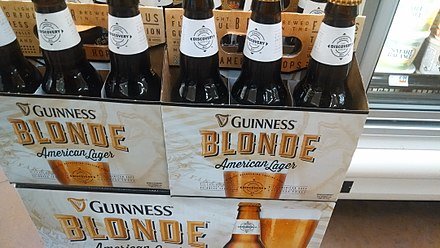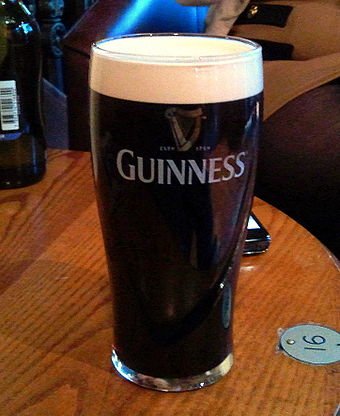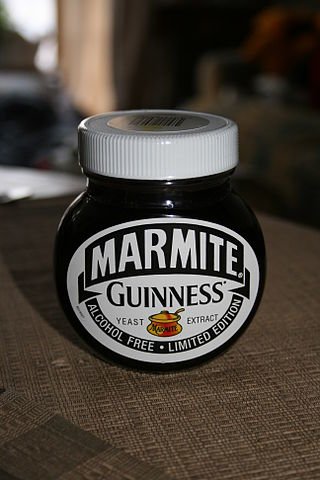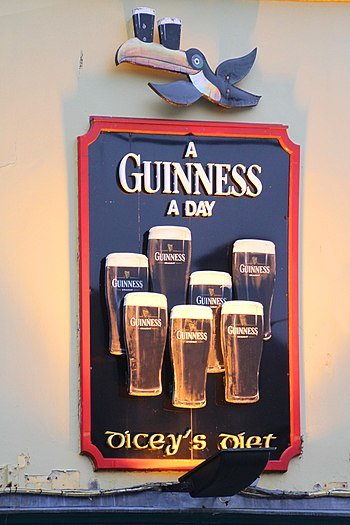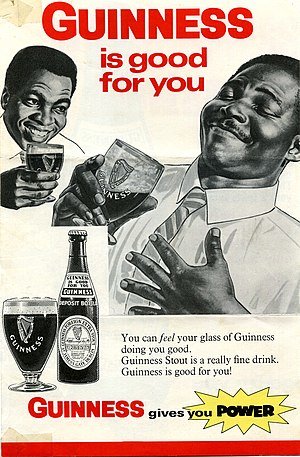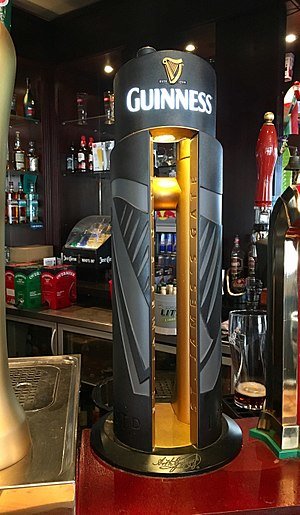British Heritage
Remember, Cherish, Learn.
beta
Guinness - The Iconic Irish Brew, since 1759
A Legacy of Iconic Irish Brew, Contribution to British Heritage, and Global Success - Brewing Excellence and Cultural Symbol.
Introduction
Guinness, the iconic Irish dry stout, holds a prominent place in both Irish and British heritage and has become one of the most successful alcohol brands worldwide. Its journey began in 1759 when Arthur Guinness established the brewery at St. James's Gate, Dublin, Ireland. Over the centuries, it has grown to become a symbol of Irish identity and a beloved beverage enjoyed across the globe. This article delves into the legacy, contributions to British heritage, success, and general information about this renowned Irish brew.
Legacy and Contribution to British Heritage
Guinness, with its rich history dating back to the 18th century, has contributed significantly to British heritage in various ways. During the Second World War, the British demand for Guinness played a pivotal role in lifting commerce restrictions imposed on Ireland to secure support for the allies. The popularity of Guinness in the UK showcased the interconnectedness of British and Irish culture, transcending political tensions and fostering trade relationships.
Moreover, Guinness has become synonymous with Irish pubs, which have a strong presence in the UK, particularly in cities like London and Manchester. The Irish pub culture, often associated with hearty conversations and live music, has enriched British social life and added a unique dimension to British heritage. The widespread availability of Guinness in British pubs has played a significant role in nurturing this cultural connection.
Success and Global Reach
Guinness's success is undeniable, boasting a global footprint with production in nearly 50 countries and availability in over 120 nations. In 2011 alone, sales reached a staggering 850 million liters, solidifying its position as one of the most popular alcoholic beverages globally. Despite some decline in consumption since 2001, it remains the best-selling alcoholic drink in Ireland.
The brand's triumph can be attributed to its unique flavor, derived from a blend of malted barley and roasted unmalted barley. This combination, along with a distinctive "tang," sets Guinness apart and appeals to a diverse range of palates. Furthermore, the company's commitment to quality control and continuous improvement has maintained its reputation for excellence.
General Information and Brewing Techniques
Guinness's brewing process involves a mix of tradition and innovation. Originally, the stout was aged and blended with freshly brewed beer, lending it a sharp lactic acid flavor. Although the specifics of this blending remain a mystery, the company continues to uphold its age-old brewing techniques.
In the 20th century, nitrogen and carbon dioxide were introduced to create the iconic creamy head associated with draught Guinness. This innovation transformed the drinking experience, making it smoother and more palatable. The thick, frothy head is a result of the nitrogen-carbon dioxide mix and adds to the allure of enjoying a pint of Guinness.
Corporate Developments and Societal Impact
Over the years, Guinness has experienced significant corporate developments. It moved its headquarters to London during the Anglo-Irish Trade War in 1932. Subsequently, in 1997, Guinness plc merged with Grand Metropolitan to form Diageo plc, a multinational alcoholic-drinks producer based in London.
The company's commitment to employee welfare was evident from the early 1900s, with unparalleled welfare schemes for its 5,000 employees by 1900. Guinness played a supportive role during times of conflict, as evidenced during World War I when over 800 employees served in the British forces, with job guarantees upon their return. However, not all of them returned, with 103 employees making the ultimate sacrifice.
Guinness as a Cultural Symbol
Guinness, often affectionately called "the black stuff," holds a special place in Irish and British cultural traditions. From iconic advertising campaigns, featuring the memorable tagline "Guinness is Good For You," to the famed Guinness toucan, which has become an enduring symbol of the brand, the company's marketing has left an indelible mark on popular culture.
Furthermore, Guinness's culinary applications and its involvement in various cultural events, like Arthur's Day, have cemented its place as an integral part of Irish celebrations and heritage. The Guinness Storehouse in Dublin, attracting millions of visitors yearly, serves as a testament to its cultural significance, showcasing the artistry and craftsmanship behind this beloved stout.
Conclusion
Guinness's legacy, contribution to British heritage, and global success have been shaped by a combination of tradition, innovation, and the enduring appeal of its unique flavor profile. From its humble beginnings in 1759, this Irish dry stout has evolved into an iconic brand, bridging cultural divides and bringing people together across the world. With its rich history, commitment to quality, and cultural symbolism, Guinness remains an enduring symbol of Irish identity and a cherished part of British heritage.
- Guinnessen.wikipedia.org
